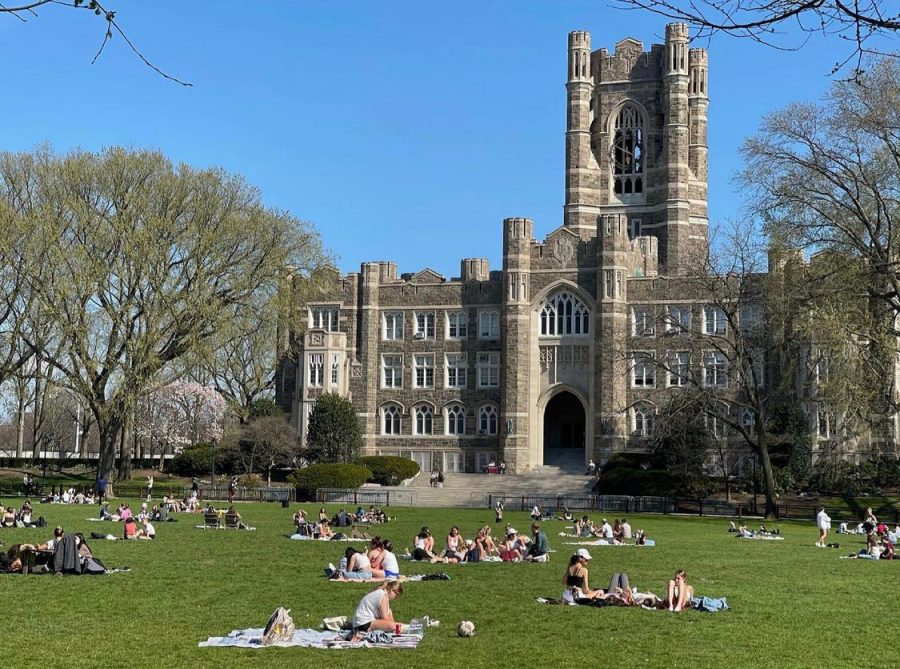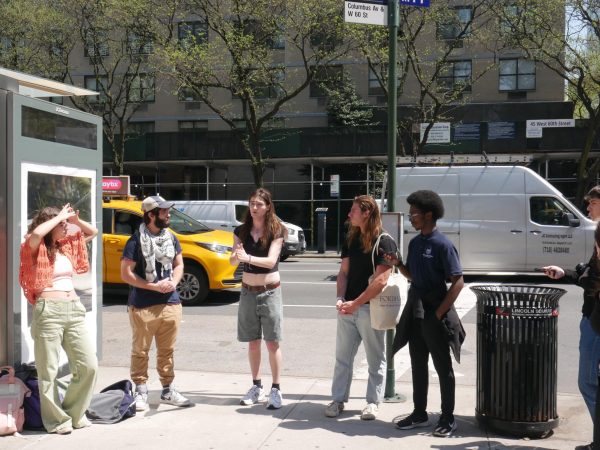USG Passes ‘Wellness Week’ Proposal
During the COVID-19 pandemic, the United Student Government (USG) has been working on finding an innovative solution to the toll that the pandemic has taken on students’ mental health. One of the newest initiatives from USG at the Rose Hill campus is a proposal called “Wellness Week.” It focuses on improving students’ mental well-being and proposes the addition of a few reading days before midterms each year.
According to the creators of the proposal, Senator Flannery Brown, FCRH ’21, and Senator Kristen Ronan, FCRH ’22, it was designed primarily to “address the additional stress and strain imposed by this 2021 Spring semester due to the lack of significant breaks,” Brown said.
Brown and Ronan came together after they discovered that their concerns and ideas focusing on students’ mental health were highly compatible. Ronan was interested in adding “mental health” as a reason for an excused absence and Brown wanted to work on finding a creative solution to missing spring break this academic year.
Ronan and Brown decided to create a joint, all-encompassing proposal. They called it “Wellness Week,” with the name based on the American University Senate’s own Wellness Week.
The two did not work completely alone to craft the proposal. “During the writing process, we received assistance from USG VP Thomas Reuter, as well as Dr. Jeffrey Ng, the director of Counseling and Psychological Services at Fordham,” said Brown.
The proposal aims for the “Wellness Week” to come at the beginning of the week of April 12, 2021. The “Wellness Week” would span the following three to five days; Brown and Ronan are not yet sure how many days it would be in total. During this period, classes would continue as normal, but faculty would be restricted from having assignments due that week. The proposal also notes that students could be excused from one class per semester on the basis of a mental health day.
The mental health day would “work the same as an excused absence,” explained Senator Lindsey Sullivan, FCRH ’21, an additional contributor to the proposal. In order to be fully excused, students would be required to email their professor ahead of time with the date and reason for their absence.
In order to ensure that students’ stretch of reading days is truly stress-free, Brown said, “[Kristen and I] outlined what counts as ‘homework,’ so professors do not attempt to go around the rule by assigning discussion posts.” Brown said, “An honor system [will hold the professors] accountable.”
However, there have been doubts about the possibility of the proposal being approved by the administration.
Brown stated that when it was discussed during a recent Dean’s Council meeting, Dean Maura Mast, dean of Fordham College at Rose Hill, was hesitant to approve of doing a Wellness Week for the Spring 2021 semester due to the rapid turnaround that would be necessary and the abrupt disruption it would cause in professors’ current planned curriculum.
According to Anna Lazarro, FCRH ’21, a student on FCRH Dean’s Council, “When presented at college council … many departments expressed interest in implementing the wellness week as much as possible this semester and making it a continuing initiative in the fall semester.”
Ultimately, Brown and Ronan’s intentions were to pinpoint a solution to help overwhelmed students with their coursework. After speaking with multiple students at Fordham, they found that many people felt at least some level of distress in their classes at the moment. Although COVID-19 was a contributing factor in the reasons for the proposal, the end goal still remains to combat the long-term mental health issues seen more abundantly on college campuses throughout the country.
Brown said she and Ronan want to “relieve academic stress and anxiety and help students and professors feel supported by the University.” The proposal passed USG during a meeting on March 25 but will only be implemented pending approval and further planning by the university administration.











































































































































































































